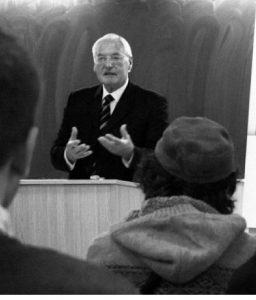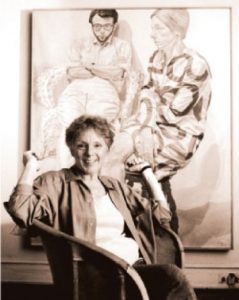Scholarship and Freedom
In his latest book, Scholarship and Freedom, Kenan Senior Fellow Geoffrey Harpham questions the notion that scholarship is a niche endeavor and has lost some footing in terms of relevance, prestige and respect in the modern world. In his introduction, Harpham writes:
The question that hovers over every page of this book is whether scholarship can be sustained in a world very unlike the one in which it emerged and first flourished. Scholarship may not seem like the most important or admirable thing in the world today; it may not seem to exhibit freedom in the vernacular sense at all. But the premises and assumptions that support scholarship, and which it in turn supports, are, I will argue, fundamental to the freedoms associated with the modern world. The larger question, and not just for scholars, is whether a world in which the role of scholarship is diminished, devalued, or compromised is a world we would choose to live in.
Harpham argues scholarship and freedom are naturally connected. He states, “The integrity of scholarship depends on its independence from power, habit, prejudice, desire, or any force external to scholarship,” while scholarship embodies fundamental freedoms such as inquiry, thought and expression. In this book, Harpham paints a narrative of three extraordinary individuals by examining the paths of each of their careers. In doing so, he illustrates how these two very broad concepts of scholarship and freedom are linked together, showing his reader how scholarship plays an important role in emancipatory political and social movements as well as making connections between recent attacks on scholarship and the rise of authoritarian political movements.




REVIEWS:
Scholarship and Freedom is a distinctive and powerful book. A short, sharp introduction, three well-wrought case studies and an eloquent conclusion offer the reader something no one else has: a brilliant, polemical account of why scholarship in the humanities and social sciences still matters. Harpham makes this case not by slinging platitudes, as others have done, but by exemplifying the work that he shows is central to the scholarship he praises: by showing how scholars wrest from evidence, which often fights back, new and powerful accounts of society, culture and canonical texts. – Anthony Grafton, Princeton University
That he begins (and concludes) his arguments by saying that scholarship contributes to freedom by way of telling the truth, when so much of modern theory and, alas, modern public discourse is marked by a deep distrust of assertions of truth, can suggest how important this work is. It is beautifully nuanced, structured, argued, itself both a work of scholarship and in a certain sense of art. – Anonymous distinguished senior scholar
Scholarship and Freedom will be released next year from Harvard University Press.
